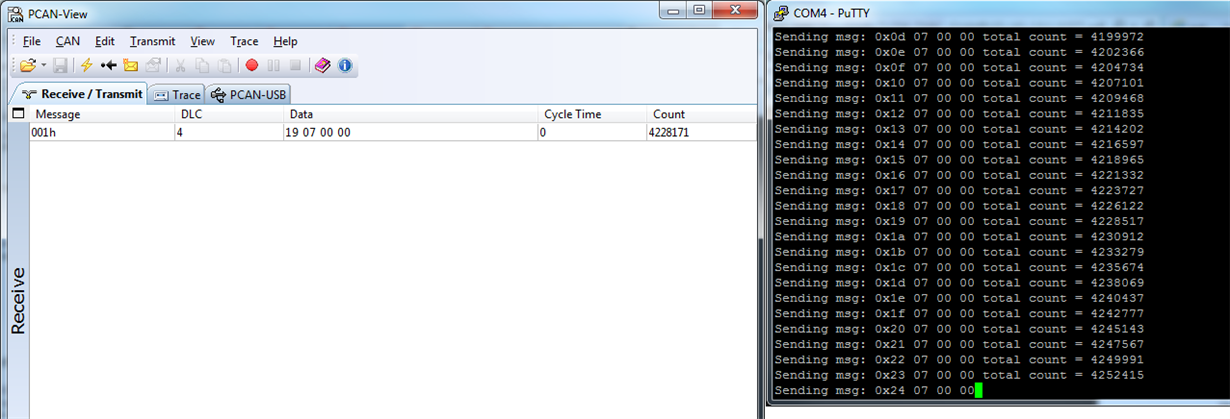Guys,
I just started using TM4C123G Launchpad to establish a CAN bus application. I am using simpletx tivaware (as is) example to run the CAN bus from CAN0(PB4, PB5) into a sn65hvd251 transceiver.
The CAN bus seems to be set up correctly as I can see the right messages being transmitted on my bus monitor. The issue I have is that message transmission does not seem to block on the SimpleDelay() function (even though UARTprintf is).
The console shows a status message every ~1s but CAN messages are being transmitted approx. every 40ms. The console output below shows the messages printed out, but as you see they are skipping ~2400 counts every second. The received message count on the CAN bus monitor correlates very well with the count here.
My question is that a) is this expected? Is there a different delay method I should be using?
b) if this is not expected, does anybody see anything wrong with my code. The interrupt seems to be setup fine because I am getting a count++ for every message received by the CAN monitor.
Thanks
Sid


